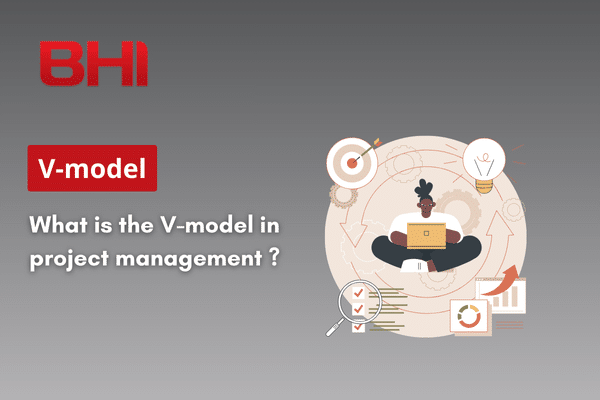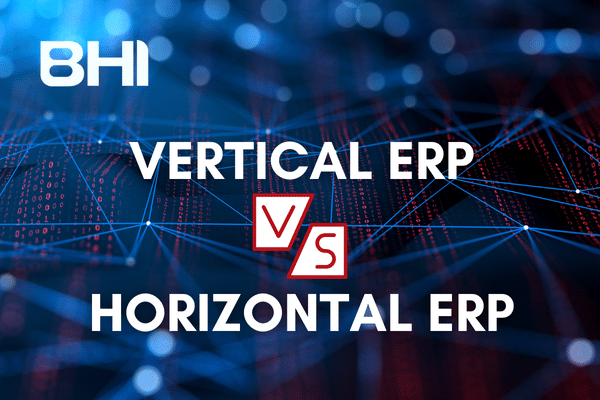Digital transformation has become a strategic imperative for any organization looking to remain competitive. Yet, despite significant investments, McKinsey reports that 70% of digital transformation projects fail to achieve their objectives. At the heart of this paradox lies a simple but crucial observation: the success of digital transformation depends less on the technology itself than on the organization’s ability to adapt and evolve. This is where change management comes into play, particularly essential when implementing management solutions such as ERP and EPM systems.
The Digital Transformation Paradox: Beyond Technology
Companies invest heavily in sophisticated technological solutions but often neglect the human dimension of transformation. A Gartner study reveals that 33% of ERP project failures are attributable not to technical problems, but to resistance to change and lack of user adoption.
Digital transformation is not simply about implementing a new tool. It involves a profound evolution of processes, working methods, and more fundamentally, the corporate culture. This shift can generate legitimate fears among employees: fear of skill obsolescence, concerns about their ability to master new tools, or simple apprehension about challenging established reference points.
“A successful project ensures high-quality data is made available to decision-makers. But this quality cannot be achieved without the buy-in and engagement of end users,” notes Raphaël Samoun, CEO of BHI Consulting.
Management Solutions: The Backbone of Digital Transformation
ERP and EPM solutions play a central role in the digital transformation of companies. Much more than simple IT tools, they structure all business processes and form the technical foundation on which the digitalization strategy rests.
However, implementing these systems presents specific challenges. Their cross-functional nature implies a global re-examination of processes and affects all departments. They also impose standardization that may conflict with long-established work habits.
The new generation of solutions like JD Edwards, SAP S/4 HANA, or Oracle eBusiness Suite now incorporates artificial intelligence functionalities which, while offering unprecedented analysis and automation capabilities, increase the need for support. These technologies profoundly modify roles and require a significant upskilling of users.
The BUILD & RUN Approach: A Proven Methodology for Change Management
Facing these challenges, BHI Consulting has developed a distinctive two-phase approach that combines technical expertise and human support.
The BUILD Phase: Design and Deploy
The BUILD phase is dedicated to constructing and deploying management systems adapted to the specific realities of the company. This approach is distinguished by:
- Co-construction: Involving end users from the design stage allows the development of solutions that truly meet business needs and facilitates future adoption.
- Progressive deployment: A phased deployment, with identified quick wins, quickly demonstrates the added value of the project and strengthens buy-in.
- Personalized support: Customized training, adapted to different user profiles, facilitates the adoption of new tools.
- Transparent communication: A clear communication plan on objectives, expected benefits, and project progress reduces uncertainties and resistance.
Concrete example: For a major player in the pharmaceutical industry, BHI deployed Oracle JD Edwards by mobilizing a mixed team of technical and business consultants. This approach allowed adapting the solution to the sector’s regulatory specificities while facilitating its adoption by more than 500 users across 3 continents.
The RUN Phase: Optimize and Sustain
While the BUILD phase lays the foundations for change, the RUN phase ensures its sustainability. It revolves around three major axes:
- Continuous improvement: Regularly measuring the effective use of tools and collecting user feedback identifies areas for optimization.
- Progressive autonomy: Transferring skills and knowledge to internal teams is essential to guarantee long-term autonomy.
- Anchoring in corporate culture: Integrating new practices into evaluation processes, celebrating successes, and valuing acquired skills contributes to sustainably anchoring change.
“The transfer of knowledge constitutes a guarantee of our clients’ autonomy and project success,” emphasizes Raphaël Samoun. “Our goal is not to create dependency, but to enable our clients to fully own their management tools.”
Sector-Specific Adaptations: Tailoring Change Management
Each sector presents specific challenges that require adaptation of the change management approach.
In the food industry, digitalization often involves a profound transformation of production and supply chains. Support must take into account the diversity of profiles, from field operators to administrative teams, with training adapted to each level of familiarity with digital tools.
For the construction sector, characterized by mobile teams and decentralized projects, emphasis must be placed on the accessibility of solutions and their use in mobility situations. Highlighting concrete gains (reduced billing times, better inventory management, etc.) constitutes a powerful lever for adoption.
In the banking and insurance sector, digital transformation comes with particularly sensitive regulatory issues. Change management must integrate a strong dimension of compliance and data security, while demonstrating how new solutions can strengthen customer relationships.
Human Success Factors: Human Capital at the Heart of Success
The success of digital transformation relies on several key human factors:
Business Expertise as an Adoption Lever
The most successful projects are those where business experts play a central role. Their in-depth knowledge of processes and specific issues allows technical solutions to be adapted to operational realities. At BHI, the balance between technical and business expertise constitutes a differentiating factor: each project mobilizes consultants with dual competence, ensuring that deployed solutions meet concrete user needs.
Continuous Training as a Pillar of Change
Training should not be limited to tool usage but extend to understanding new processes and their added value. The most effective training programs combine collective sessions and individual support, particularly during the first weeks of use.
Digital Acculturation at All Levels
Buy-in must be stimulated at all levels of the organization. Visible leadership commitment is crucial, but identifying “change champions” in operational teams is equally important. These relays, deeply trained, become ambassadors to their colleagues and help spread best practices.
Measuring Digital Transformation Success
A successful digital transformation is measured beyond traditional technical indicators. Among the relevant KPIs are:
- Solution adoption rate: percentage of active users and frequency of use
- Team autonomy: number of support tickets and evolution over time
- Operational efficiency: reduction in processing times, improvement in data quality
- Return on investment: direct and indirect financial gains attributable to new solutions
The most mature organizations also implement regular user satisfaction surveys to measure perception evolution and quickly identify friction points.
Conclusion: Digital Transformation, a Strategic Issue Requiring Tailored Support
Digital transformation represents much more than a simple change of tools; it’s a profound evolution that affects the very DNA of the organization. ERP and EPM management solutions constitute the technical foundation, but their implementation cannot succeed without structured, human-centered change management.
The BUILD & RUN approach developed by BHI Consulting combines technical expertise and human support to ensure not only the successful deployment of solutions but also their sustainable adoption and integration into the corporate culture.
Facing the challenges of digital transformation, choosing an experienced partner who understands both technical and human issues constitutes a key success factor. BHI Consulting offers to conduct a personalized diagnosis of your digital transformation project and identify optimization levers adapted to your specific challenges.
Want to discuss your digital transformation project? Contact our experts at +33 (0)1 83 62 12 23 or via our form.

















